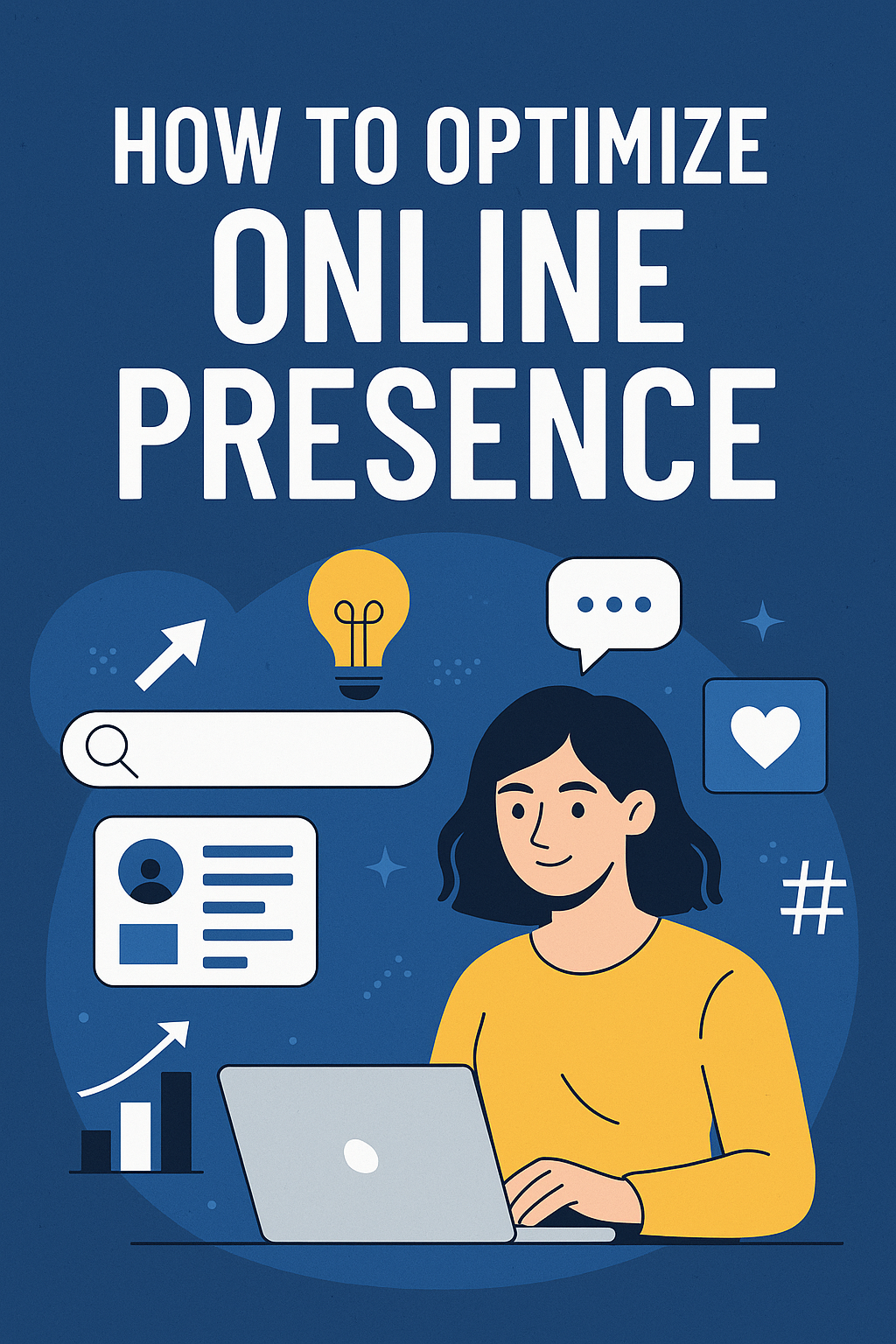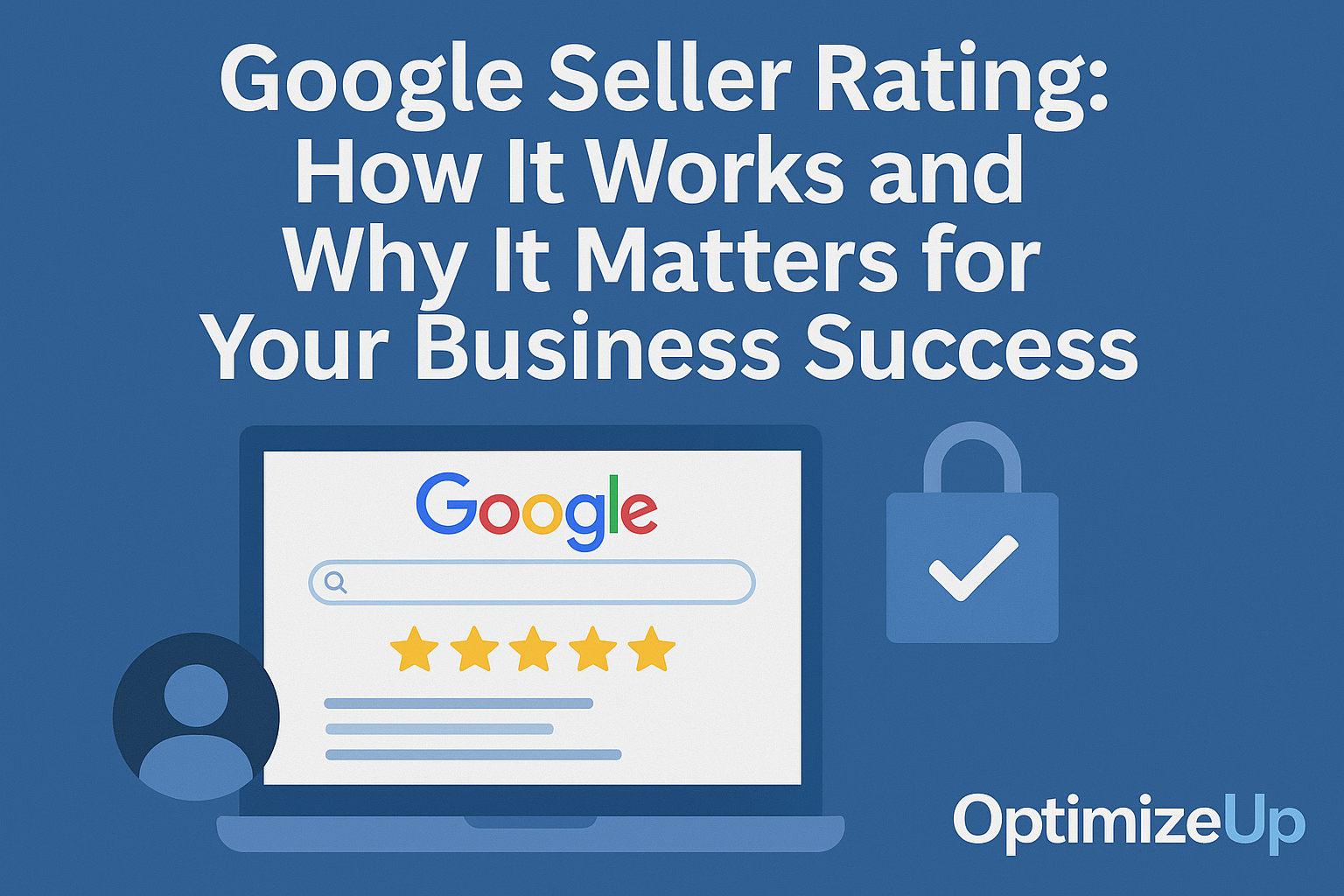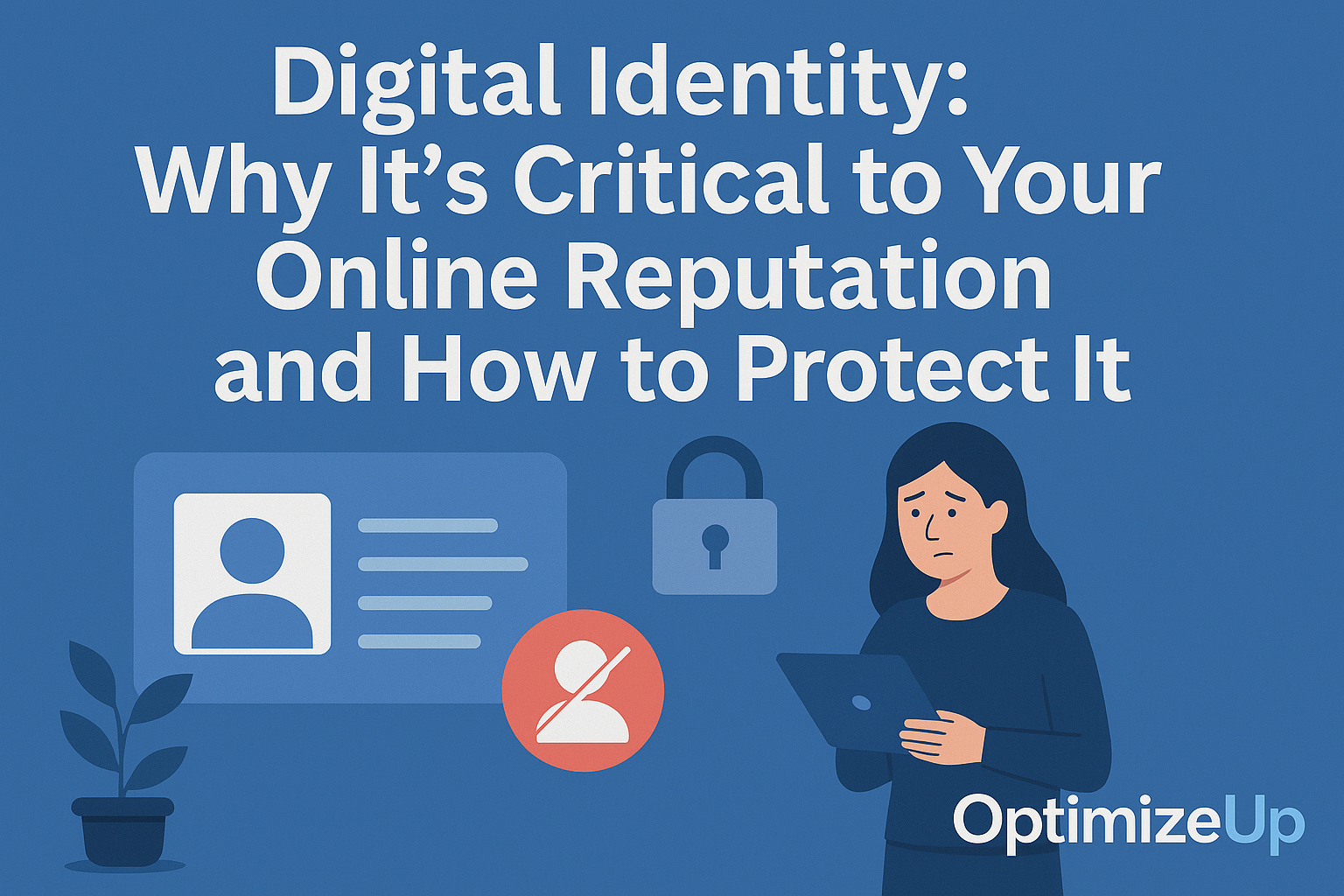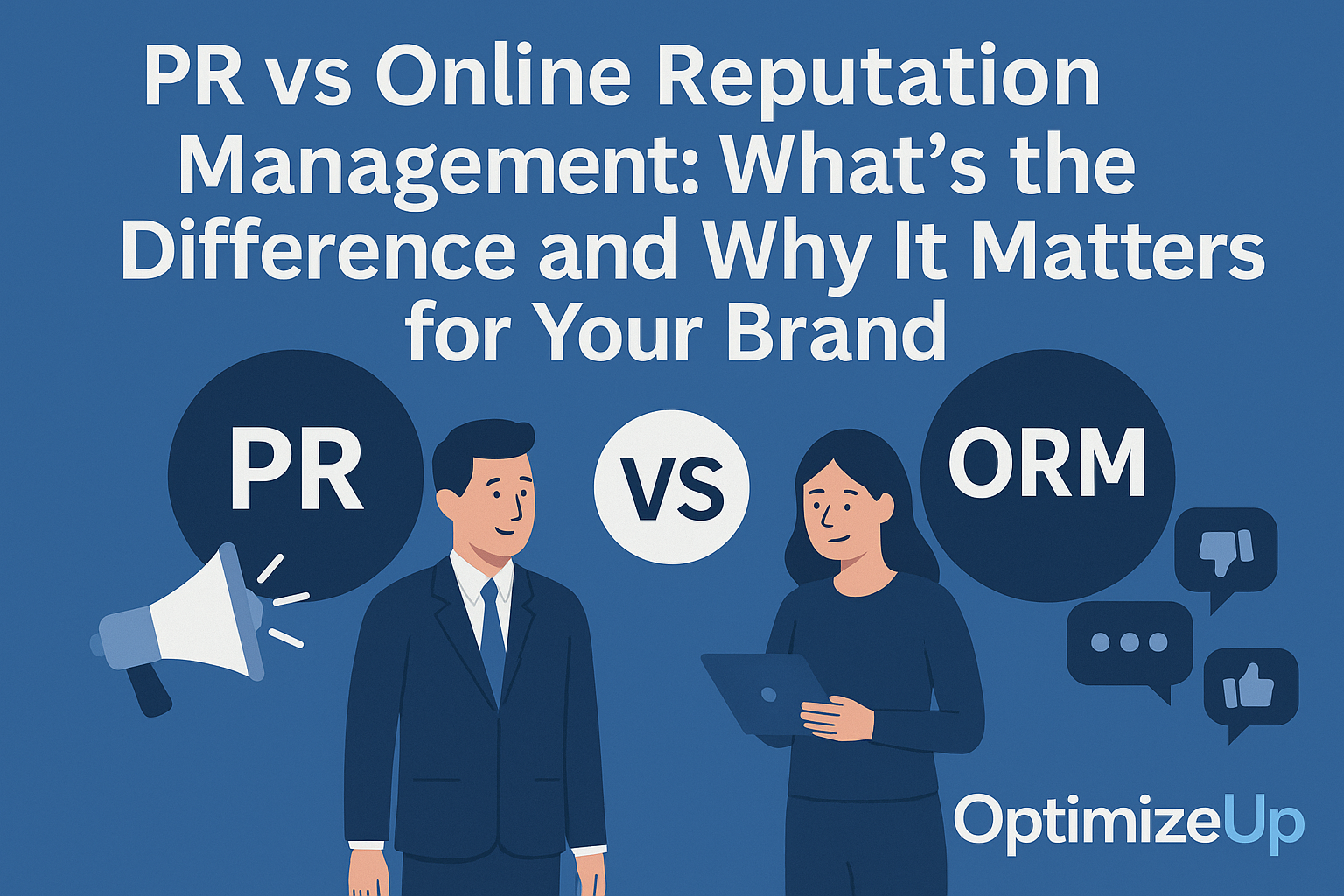Why Optimizing Online Presence Is Essential in 2025
Your online presence shapes first impressions, trust, and visibility across search engines and social platforms. Whether you’re a solo entrepreneur or a growing business, optimizing your footprint across the web can dramatically boost traffic, engagement, and conversions.
Benefits of optimizing your online presence include:
- Better visibility in search and map results
- Stronger brand consistency
- Improved reputation management
- Higher conversion and engagement rates
- Greater customer loyalty and repeat interactions
Today’s competitive environment demands consistency, transparency, and engagement across every channel where your brand lives.
Conduct an Online Presence Audit
Start with a full audit to understand your current standing.
Audit tools:
Check for:
- Inconsistent NAP (Name, Address, Phone)
- Duplicate listings or social profiles
- Outdated bios, branding, or contact pages
- Broken links and missing metadata
- Negative or unmanaged reviews
- Lack of schema or SEO fundamentals
Bonus Tip: Build a master spreadsheet of all your owned assets, including login credentials, publication status, and notes for improvement.
Build a Unified Brand Across All Platforms
Align Visual Identity
- Use consistent logos, colors, and imagery
- Keep banners, avatars, and fonts aligned
- Ensure high-resolution visuals for all profile pictures and headers
- Use brand guidelines to control third-party representations
Standardize Your Voice and Messaging
- Develop brand tone guidelines (e.g., friendly, expert, witty)
- Train your team on tone and communication standards
- Incorporate core brand messages in bios and descriptions
Maintain Accurate Business Listings
Ensure all listings display identical NAP details:
- Google Business Profile
- Yelp
- Apple Maps
- Facebook Business
- Bing Places
- Better Business Bureau
- Industry-specific directories (e.g., Avvo for lawyers, Zocdoc for doctors)
Use a listings management tool or outsource to a provider to keep information current across the web.
Optimize for Search Engine Visibility
Use On-Page SEO Best Practices
Apply SEO tactics to your main site and landing pages:
- Title tags: include brand + main keyword
- Meta descriptions: include unique value proposition
- Header tags: structured with H1, H2, H3
- Internal linking: connect blog posts, about pages, and services
- Image optimization: include descriptive alt text and compress for speed
Target Branded and Non-Branded Keywords
Include:
- “[Your Name] reviews”
- “Services near me”
- Long-tail location-specific queries
- “Top [service] provider in [city]”
Use Semrush or Ahrefs for keyword discovery and search volume data.
Implement Schema Markup
Schema.org markup helps search engines understand your site. Add:
- Organization
- Person
- LocalBusiness
- FAQ
- Review
- Event (if you host webinars or in-person workshops)
Use Google’s Rich Results Test to validate your code and preview snippets.
Improve Your Social Media Footprint
Optimize Social Bios
- Include main keywords and city, if applicable
- Add CTA or link to site
- Tag affiliated brands, influencers, or partners
Post Consistently With Purpose
- Create content pillars (education, testimonials, FAQs, behind-the-scenes)
- Use a content calendar for consistency
- Schedule using tools like Buffer, Later, or Hootsuite
Cross-Link Platforms and Website
- Add social buttons and feeds to your site
- Add your website to every social bio
- Use Linktree or Campsite for multiple links in Instagram bios
Leverage Influencer Mentions or User-Generated Content
- Encourage reviews and tags from happy clients
- Repost authentic testimonials
- Partner with micro-influencers in your niche
Reputation Management and Reviews
Monitor Brand Mentions and Reviews
Use tools like:
Respond Promptly and Authentically
- Address complaints with empathy
- Acknowledge positive feedback
- Avoid copying and pasting templates
- Use human language and sign off with names or initials
Generate Positive Reviews
- Ask satisfied clients directly (in-person or via email)
- Use SMS or email review request tools
- Add a Google review button to your email signature
- Offer QR code review prompts on invoices, receipts, and packaging
Create Valuable, Search-Optimized Content
Build a Blog Strategy
- Answer customer FAQs
- Highlight success stories
- Provide tips, trends, and how-to guides
- Use structured headings and keyword-rich URLs
Repurpose Content Across Platforms
Turn blogs into:
- Infographics
- Short-form videos
- Email newsletter tips
- Carousel posts for LinkedIn and Instagram
- Audio snippets for podcast teasers
Collaborate With Industry Experts
- Publish interviews, guest blogs, and collaborative videos
- Co-host webinars or Instagram Lives
- Share mutual backlinks to expand reach
Secure and Optimize Your Website
Improve Speed and UX
- Compress images using TinyPNG
- Use lazy loading on non-critical visuals
- Minimize code with minification tools
- Use a CDN like Cloudflare
Make Your Website Mobile-Friendly
- Use responsive design
- Test on multiple devices and browsers
- Optimize fonts and clickable areas for mobile
- Add tap-to-call buttons on service pages
Secure Your Site With HTTPS
- Install SSL certificates
- Redirect HTTP pages to HTTPS
- Monitor for malware or blacklisting with Google Safe Browsing
Track, Test, and Continuously Improve
Use Analytics and Heatmaps
Track:
- User behavior with Hotjar
- Acquisition channels with Google Analytics
- Search visibility with Semrush or Ahrefs
Test Performance With A/B Tools
- Test different CTAs, layouts, or messaging
- Use VWO, Convert.com, or Optimizely
Review Your Online Presence Monthly
- Revisit your audit checklist
- Fix broken links, misspellings, or inaccurate business info
- Archive or update outdated content
- Review SERPs for brand queries
How Optimized Up Can Help
At Optimize Up, we understand the power of a cohesive, optimized online presence. Our team offers:
- Brand consistency audits
- Local SEO and listings management
- Review generation and monitoring
- Social media optimization
- High-performance website tuning
- Content strategy and analytics consulting
Book your free online presence assessment to see where your brand stands and how we can help you stand out.
FAQ: Optimizing Online Presence
Results vary, but most clients see measurable changes within 60 to 90 days with consistent effort.
Start with your website and Google Business Profile. These are foundational.
Set up Google Alerts and use a reputation monitoring tool like Mention.
Yes—especially local reviews. They influence trust, SEO, and buying decisions.
Indirectly, yes. Strong engagement and link sharing increase brand signals and backlinks.
Content showcases expertise, builds trust, improves SEO, and keeps your audience engaged across channels.
Both! Use your personal brand to build trust and your company brand for scalability and professionalism.
MLA Citations:
Google. “Search Console Overview.” Google Search Central, https://search.google.com/search-console/about
Semrush. “How to Do an SEO Audit in 2025.” Semrush Blog, https://www.semrush.com/blog/seo-audit/
Ahrefs. “Improve Your Website’s Online Visibility.” Ahrefs Blog, https://ahrefs.com/blog/seo-basics/
Yext. “PowerListings and Listings Accuracy.” Yext, https://www.yext.com/
Schema.org. “Schema Markup for Structured Data.” Schema.org, https://schema.org/
Trustpilot. “Review Insights and Consumer Trust Data.” Trustpilot, https://www.trustpilot.com/
Hotjar. “Behavior Analytics Tools.” Hotjar, https://www.hotjar.com/





